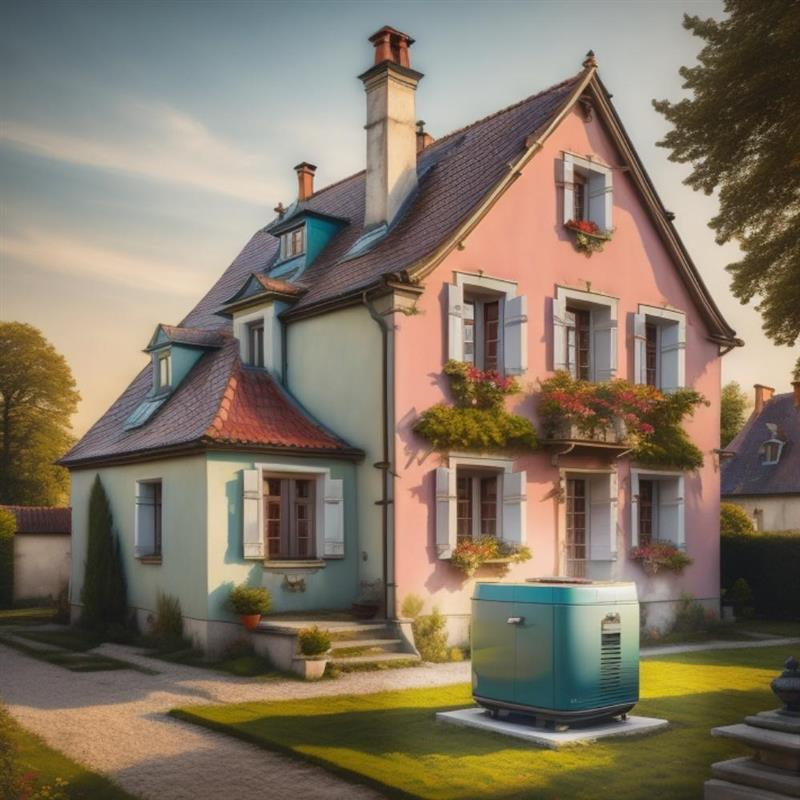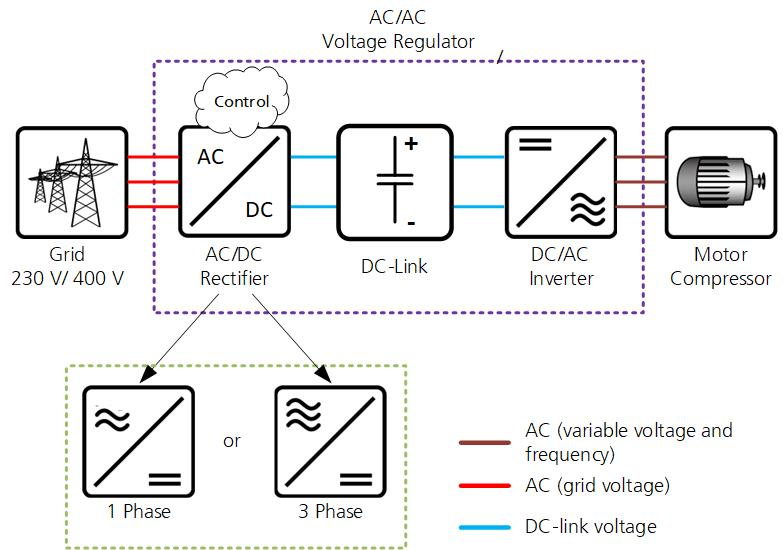| Duration: | 01/2023 - 12/2025 |
| Contracting Authority/ Sponsors: | Federal Ministry of Economic Affairs and Climate Action (BMWK) |
| Project Partners: | Stiebel Eltron GmbH & Co. KG |
| Project Focus: |
QUEEN-HP – Inverter4R290: Frequency Converter with APFC for Noise-Reduced Heat Pumps with Refrigerant R290
Quiet Efficient Electric Natural Refrigerant Heat Pump


Heat pumps play a crucial role in the future climate-neutral heating and air conditioning of buildings. In 2021, heat pumps were used in half of all new buildings. Germany recorded the operation of 1.2 million heat pumps in the same year. The majority of these heat pumps (70%) use air as a source. As their numbers continue to rise sharply, an increasing challenge arises: reducing heat pump noise to a minimum. To meet this challenge, a project network of heat pump manufacturers, component suppliers and research institutes has joined forces to minimize the noise generated by air-to-water heat pumps.
The »QUEEN-HP« project network combines method development for acoustic analysis and evaluation of heat pumps and their components with solution developments in technology projects with new components in heat pumps, new forms of sound attenuation and innovative energy-efficient and future-proof equipment modifications. The technology project 3 »Inverter4R290 ' Frequency converter with Active Power Factor Correction (APFC) for heat pumps with refrigerant R290« - deals with the use of the environmentally friendly refrigerant R290 in heat pumps. The focus is on the power electronics (PE). This is to be designed in such a way that it can be used for different performance classes of heat pumps. The PE consists of the APFC and an inverter stage. The PE is sized for single-phase and three-phase grid connection. The APFC is designed to meet future grid requirements in terms of harmonics in the consumed power over the complete load range and reactive power provision. The PE shall be optimized for high efficiency (also in the partial load range) and reduction of noise emissions from the heat pump. As part of the scientific goals, grid-serving behavior and high power quality of the PE shall be advanced. From the point of view of sustainability, the use of materials, the efficiency and the service life of the components used are to be investigated and potential for improvement defined.